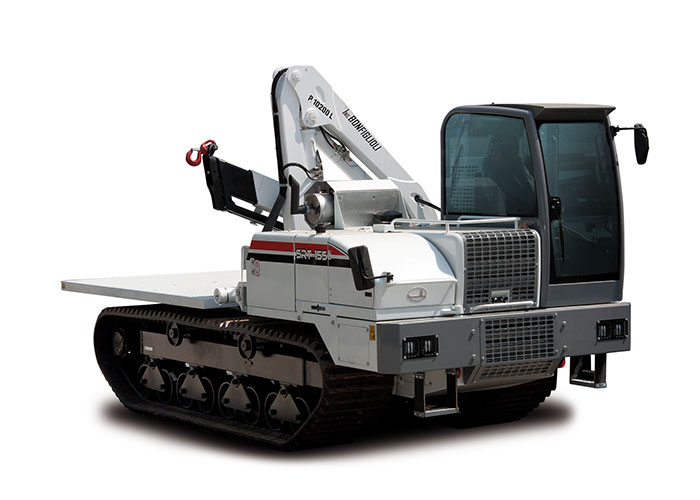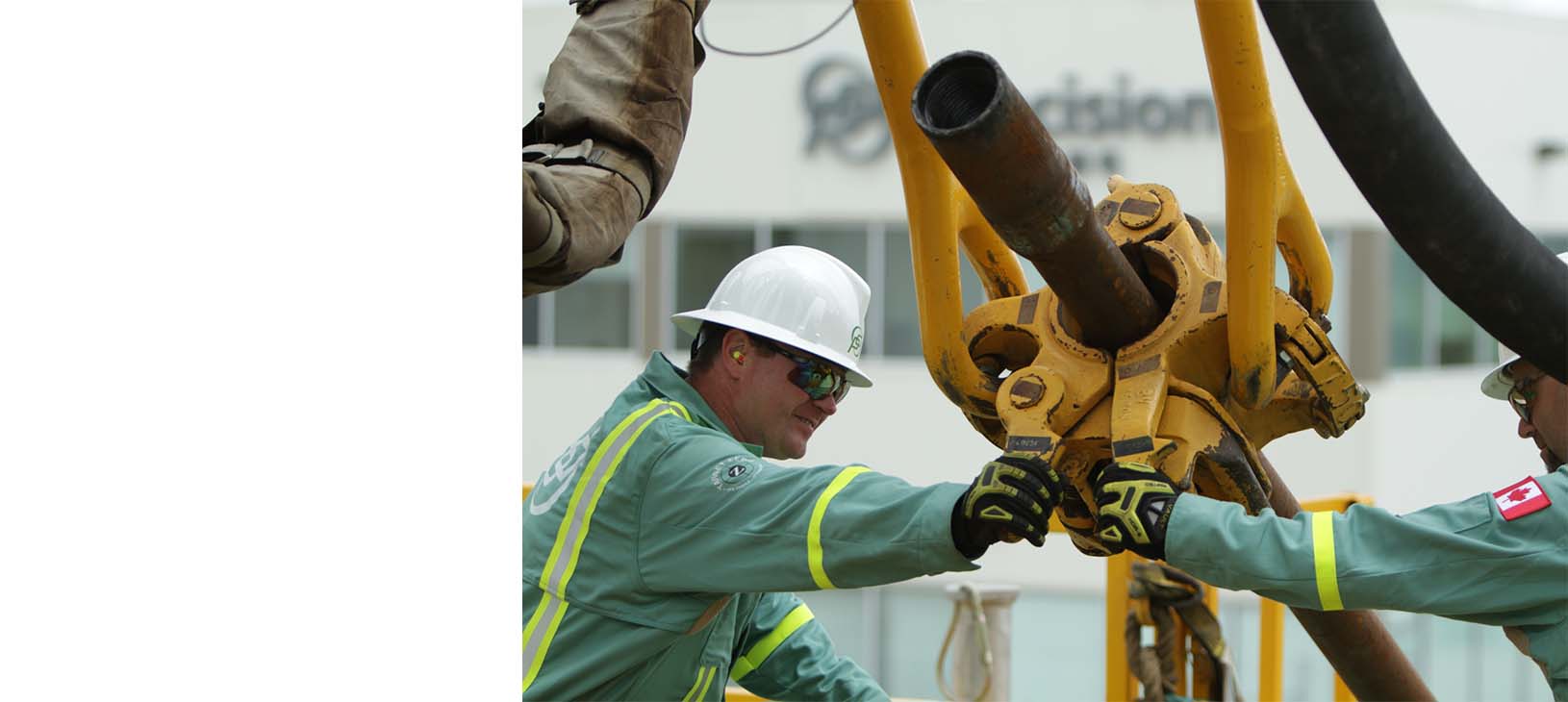Superior Rentals midland: local expertise for energy sector
Wiki Article
A Comprehensive Guide to the Different Kinds Of Oil Field Equipment and Pipeline Equipment Available
The oil and gas sector depends heavily on specialized devices for effective removal and transport. Numerous sorts of machinery, from drilling rigs to storage tanks, play essential duties in this intricate process. Each piece of tools serves distinctive features that add to overall operational success. Understanding these components is essential for any person associated with the sector. As the market evolves, so as well do the modern technologies that sustain it. What advancements are on the horizon?
Drilling Rigs: The Foundation of Oil Exploration
Drilling rigs work as the crucial machinery in the domain name of oil exploration, enabling companies to gain access to hydrocarbon reserves hidden deep under the Earth's surface. These rigs are available in numerous types, including land rigs, offshore rigs, and mobile devices, each created to operate in particular settings. Outfitted with sophisticated technology, drilling rigs can penetrate geological developments with precision, ensuring efficient source removal. The architectural honesty and operational abilities of these rigs are crucial, as they must hold up against extreme problems and considerable pressures. The option of a drilling gear impacts the total task cost and timeline, making it an important factor to consider for oil firms seeking to optimize their exploration initiatives and optimize productivity in their procedures.Pumps: Important for Fluid Activity
In the oil removal process, the function of pumps is substantial, assisting in the movement of fluids throughout different stages of production. Pumps are necessary for transferring petroleum, water, and various other fluids from underground tanks to the surface area and after that through pipes to refineries. They come in different kinds, including centrifugal, positive displacement, and submersible pumps, each offering details functions based upon the liquid characteristics and operational requirements. Centrifugal pumps are commonly utilized for their performance in high-flow applications, while favorable displacement pumps succeed in dealing with thick liquids. The choice of pump influences overall effectiveness, operational safety, and upkeep expenses. Proper option and maintenance of pumps are crucial for enhancing manufacturing and lessening downtime in oil field procedures.Shutoffs: Controlling Flow and Pressure

Shutoffs play an important function in managing the flow and pressure of fluids within oil fields and pipes. Various kinds of valves serve distinct applications, each made to meet specific features fundamental for efficient operation - Superior Rentals fusion machines. Comprehending the characteristics and uses these shutoffs is essential for enhancing system performance and security
Kinds of Valves
Essential parts in oil field procedures, shutoffs play a critical role in controlling the flow and stress of liquids within pipes and equipment. Numerous kinds of shutoffs are used to satisfy the diverse demands of oil and gas production. Common types consist of entrance valves, which give a straight-line circulation and marginal stress decline; globe valves, understood for their strangling capabilities; and sphere shutoffs, identified for their fast on/off control. Additionally, check shutoffs protect against backflow, while butterfly valves provide a light-weight remedy for regulating flow. Each shutoff type is made with specific materials and setups to withstand the extreme problems frequently discovered in oil fields, ensuring dependability and performance in operations. Comprehending these types is vital for efficient system administration.Valve Applications and Functions
While numerous kinds of valves offer distinctive objectives, their primary applications revolve around managing circulation and pressure within oil and gas systems. Shutoffs such as gate, globe, and round valves regulate fluid activity, guaranteeing peak efficiency and security. Entrance shutoffs are frequently utilized for on/off control, offering marginal circulation resistance. World valves, on the other hand, offer exact circulation regulation, making them appropriate for strangling applications. Ball shutoffs are preferred for their quick procedure and limited securing abilities. Additionally, stress relief valves are crucial for protecting against system overpressure, guarding equipment honesty. Overall, the appropriate selection and application of shutoffs boost Superior Rentals Contact functional effectiveness, making sure the trustworthy transportation of oil and gas with pipes and handling facilities.Compressors: Enhancing Gas Transport
Compressors play an essential function in the reliable transport of gas, guaranteeing that it relocates efficiently through pipelines over long ranges. These tools boost the stress of gas, allowing it to get rid of friction and altitude modifications within the pipeline system. In addition, compressors assist in the balancing of supply and need, suiting fluctuations in usage and manufacturing rates. Different types of compressors are utilized in the industry, including centrifugal, reciprocating, and rotary screw compressors, each offering distinct benefits based on the functional requirements. Routine upkeep of these compressors is important to make best use of efficiency and reduce downtime, inevitably adding to a trustworthy gas transport network. Their vital function highlights the significance of compressors in the overall oil and gas facilities.Storage Tanks: Safe and Effective Liquid Monitoring
Efficient transport of natural gas counts on numerous sustaining systems, among which is the appropriate monitoring of storage containers. These containers play a necessary function in safely having fluids, making certain that operational performance is kept while lessening ecological risks. Constructed from durable materials, they are created to withstand high stress and destructive aspects. Correctly sized and purposefully situated, storage space tanks assist in the smooth circulation of natural gas and various other fluids, avoiding traffic jams in supply chains. Routine upkeep and tracking are essential to identify leaks or structural issues, advertising safety and security and compliance with governing requirements. Ultimately, the efficient monitoring of tank is essential for the total integrity and integrity of the oil and gas industry's fluid handling systems.
Pipeline Equipments: Facilities for Transportation
Pipeline systems act as the foundation of the oil and gas market, helping with the efficient transport of hydrocarbons over large ranges. These systems include different components, consisting of pipelines, shutoffs, pumps, and compressors, all meticulously developed to assure smooth flow. The materials made use of in pipeline building and construction, often steel or high-density polyethylene, are chosen for toughness and resistance to rust. Pipeline networks can span throughout land and water, connecting production sites to refineries and circulation facilities. Furthermore, progressed technology makes it possible for real-time surveillance of flow prices and pressure degrees, boosting operational efficiency. The critical positioning of these pipes decreases ecological impact while making best use of source ease of access, consequently playing a necessary function in meeting power demands internationally.Safety Equipment: Guaranteeing Employee and Environmental Management
The operation of pipeline systems, while crucial for energy transport, also offers significant safety and security challenges for workers and the atmosphere. Security equipment plays a substantial role in mitigating these threats. Personal protective devices (PPE) such as safety helmets, handwear covers, and non-slip shoes safeguards workers from physical dangers. Furthermore, gas discovery systems check for leakages, guaranteeing that dangerous substances do not present a danger to employees or the surrounding environment. Emergency shutdown systems are essential for rapidly stopping procedures during a crisis, stopping prospective catastrophes. Spill containment products, consisting of absorbents and obstacles, are essential for minimizing environmental influence. Overall, buying all-inclusive security equipment is essential for keeping operational integrity and securing both employees and the setting in the oil and gas industry.
Often Asked Questions
How Do I Pick the Right Oil Field Equipment for My Project?
Picking the appropriate oil field tools includes reviewing task specifications, spending plan restraints, and functional requirements. Think about variables such as devices dependability, compatibility with existing systems, and the provider's online reputation to ensure peak efficiency and safety and security.What Are the Maintenance Demands for Oil Field Equipment?
Upkeep needs for oil field tools include normal inspections, lubrication, and timely repair work. Operators needs to also follow manufacturer guidelines, monitor efficiency metrics, and guarantee conformity with safety laws to enhance long life and performance.
Just How Can I Make Certain Conformity With Environmental Rules?
To ensure conformity with environmental policies, companies should conduct regular audits, carry out finest methods, purchase training, keep proper documents, and remain upgraded on regulation (Superior rentals squeeze tools). Cooperation with environmental firms can likewise enhance adherence to guidelinesWhat Is the Typical Lifespan of Pipeline Equipment?
The ordinary life-span of pipeline equipment generally ranges from 20 to 50 years, depending on aspects such as material top quality, environmental problems, and maintenance methods. Regular inspections can substantially influence long life and operational effectiveness.Just how Do I Securely Carry Oil Field Equipment to Remote Locations?
Moving oil field equipment to remote areas calls for mindful planning, including route assessment, safeguarding licenses, utilizing suitable automobiles, and making certain safety and security procedures are complied with. Appropriate training and interaction among staffs are important for effective transportation.Report this wiki page